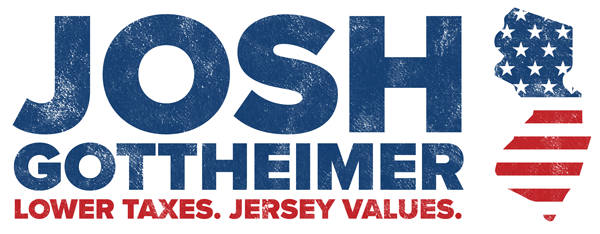November 27, 2017
Reps: Bipartisanship in Washington is actually happening
When we tell people back home about the Problem Solvers Caucus, a bipartisan group we co-chair, it’s hard for them to believe that 48 members of Congress — half of them Democrat, half Republican — come together nearly every week to find common ground on some of our toughest issues. They’d probably find it equally shocking that, earlier this month, Republican Senator Susan Collins and Democratic Senator Joe Manchin locked arms in their own effort to drive problem solving, not just across the aisle, but across the two chambers of Congress.
This isn’t some “Mr. Smith Goes to Washington” faux idealism; it’s actually happening and there is a growing group of us who believe that progress is more important than partisanship. We believe that getting to “yes” where it makes sense — on health care, DACA and border security, infrastructure, and the budget — is more important than obstruction just for the sake of it.
We’ve heard time and time again that Washington is broken and gridlock makes it impossible for members of Congress to find common ground. But we believe the ground is starting to shift — and that the public has finally had enough. If you look at a recent Harvard-Harris poll, 91% of Americans would prefer that Democrats and Republicans work together.
Earlier this year, we used this approach to engage our House colleagues in discussions about how to form an organized bipartisan bloc. Eventually, these efforts culminated in creating the Problem Solvers Caucus, the first bipartisan caucus of its kind. Some scoffed. For the better part of the last quarter century, they pointed out, the House of Representatives has been defined by a winner-take-all mentality. The majority holds the gavels and the power, rarely even acknowledging ideas from members across the aisle. So, how would a bipartisan caucus wield any real influence?
But that wasn’t their only objection. Even if the Problem Solvers managed to drive bipartisan action in the House, many doubted the Senate would ever follow suit. If the House is dominated by majority rule, then the Senate is known for the fact that one person can stop the body in its tracks. In short, there was little reason to believe we could effectively counteract an entrenched system that drives the majority party to ram through its agenda and compels the minority party to exert maximum resistance.
Today, we can say proudly that our detractors were wrong — even if our Caucus and this Congress still have a great deal of work left to do for the American people. The bipartisan health care proposal the Problem Solvers Caucus unveiled in July, designed to stabilize the individual health care marketplace and lower premiums, was the very first bipartisan plan to fix health care.
The work put in by our bipartisan members over many late nights and long meetings paved the way for those on the other side of the Capitol to come to the table, too. And now, Republican Senator Lamar Alexander and Democratic Senator Patty Murray released a plan last month, proving our bipartisan work could break through institutional barriers on Capitol Hill.
As the Alexander-Murray plan weaves through Congress, the Problem Solvers Caucus has been meeting for months on how best to bring tax relief to hardworking families, small businesses and the American people. The House has passed its plan and the Senate is considering its own version.
We will disagree with certain tax policy changes, but we firmly agree on this point — the best way to achieve lasting tax reform is on a bipartisan path. It worked three decades ago for President Reagan and Speaker O’Neill, when a plan for a simpler tax system was signed into law with support from both parties. Depending on what happens this week, our Caucus may still play a role in bridging a divide.
Now that Senators Collins and Manchin have agreed to become honorary co-chairs of No Labels, we will be working closely with them — this represents a rare opportunity for a bipartisan bridge between the House and Senate.
Here’s the hard truth everyone needs to acknowledge: The absence of bipartisanship has made it almost impossible for either party to govern. We saw that with health care, and now we need to avoid a similar path with tax reform. It’s a vicious cycle.
Now we are weeks away from all federal funding expiring. The need for a long-term bipartisan budget agreement couldn’t be more clear. Neither party wins when nothing gets done. But the real victims are the American people who depend on Washington to tackle the nation’s big challenges with a common sense approach.
This is why you’ll find Problem Solvers, even at long, odd hours in the Capitol, seated together around a large table, debating and negotiating to solve the issues that will shape the future of our America. It’s also why we’re so grateful to Senators Collins and Manchin for taking up the same cause of bipartisan cooperation in the Senate. Whether or not our cause is popular inside the Washington beltway — it’s liable to be pilloried by those who do better the worse Washington gets — we now know it can work. We’re not giving up on governing to get things done for the American people.

